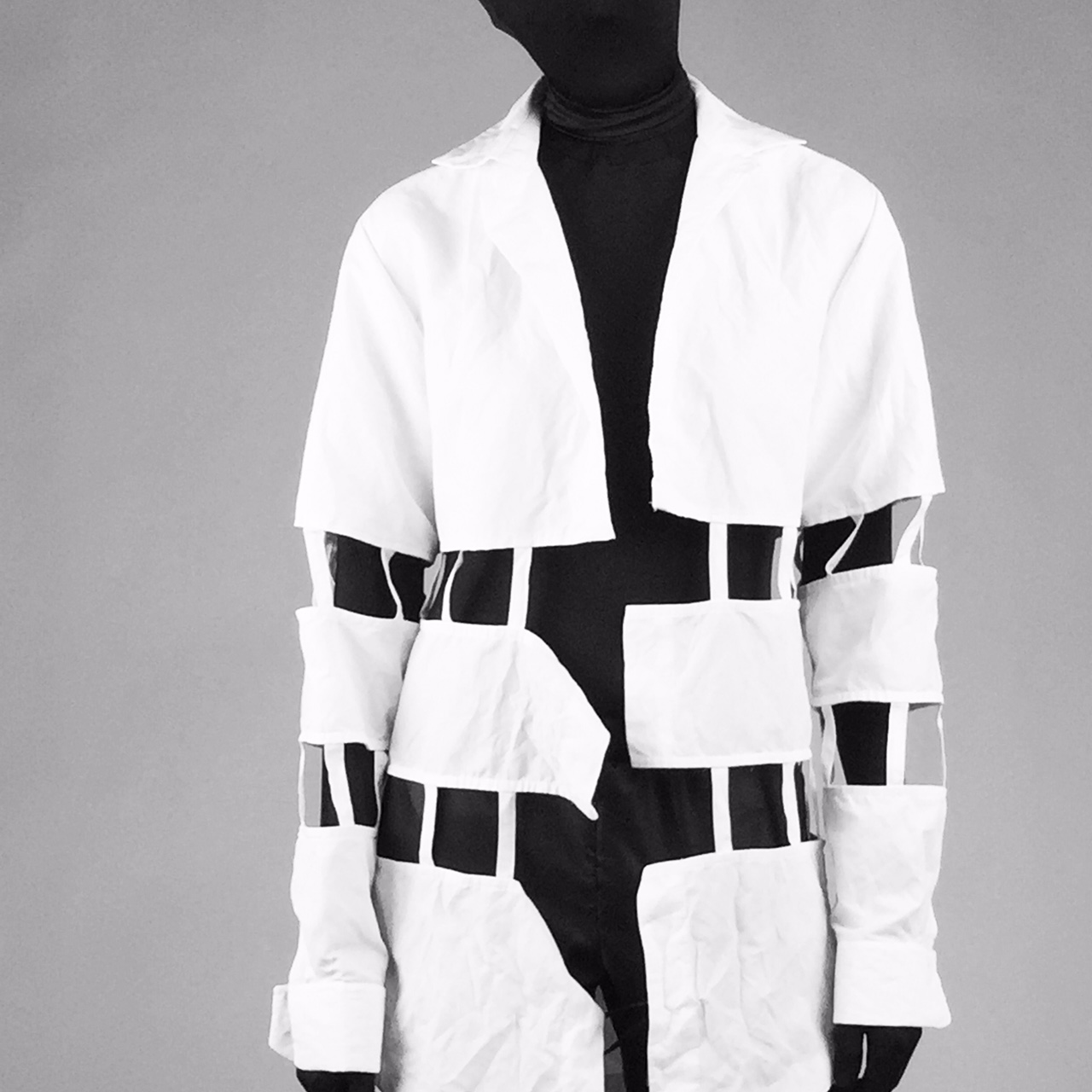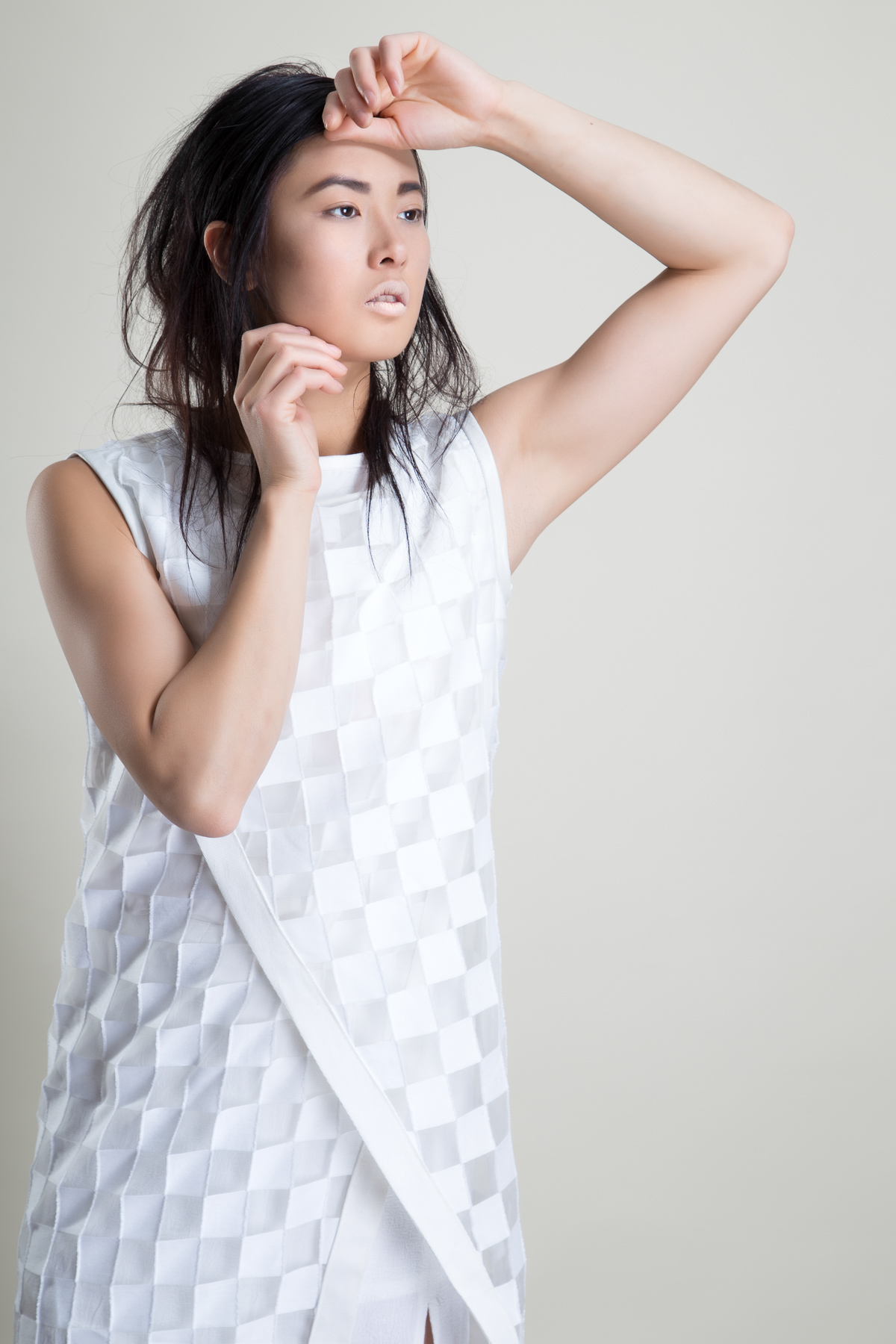Lauren Kacher
Through Form over Function Design, Lauren Kacher designs rebellious, inventive clothing. To her, "form over function" stands for freedom and she hopes to diverge from standardized social ideals to push for equality and powerful progression. Form over Function is a revolutionary design force, creating unisex ready-to-wear collections and artistic studio collaborations. These creative projects include custom designed performance wear for musicians, fashion + music films, and the exploration of wearable technology.
Each FOF collection is completely androgynous, paired with convertibility and a unique sizing system, allowing consumers to choose a style regardless of their gender.
Form over Function will be showing their newest collection, VEHEMENT, on the runway and as a fashion film, in collaboration with local visual artist, Peter Jamus. This collection explores volcanic elements and the concept of breaking though self-imposed limitations to complete liberation.
Check out Lauren's work at the upcoming Fashion Week MN Spring 2017 Market at Modist Brewing put on by Minneapolis Craft Market.
Talk about the beginnings of Form Over Function Design. What inspired you to begin this endeavor?
I began FOF right after I returned from studying abroad in London, my junior year of college. It was more of a reaction to my experience both abroad and in the US, something that really opening my eyes to the possibilities within fashion. It started more as a rebellion from what I felt surrounded with, normality, simplicity, and a preference for femininity. I felt a bit of an outsider to this mentality, and wanted to start a brand that others like myself, a bit more edgy, androgynous, and avant garde, could align with.
I love the bit on your site: "We are self starters who push to make the dream in our brains reality. We thrive on our strengths and band together with those who make up for our weaknesses." There's so much power and hope in collaboration like this. What does this mentality add to Form Over Function Design and the items you create?
I really like to emphasize the power of collaboration and teamwork, since nothing great comes solely from a single individual. It's also the reason I chose to have a brand name that anonymizes the designer. I don't want to be known for my name, I want to be known for a group of people that come together to share a similar identity through image and lifestyle. That energy is much more powerful than a single individual. I've never been drawn to the spotlight.
What does your creative process look like from start to finish? What is the most fulfilling part for you?
My creative process has drastically grown and developed since I started FOF, through work experience, collaboration, and education. I often begin by drawing inspiration from natural sources, which is a bit odd considering I wouldn't consider myself an outdoorsy person. Once I've drawn a large amount of inspiration from nature, art, society, or my own photos I begin the process of editing to find common themes to create the concept of a collection. To find garment silhouettes and textiles, I collage, drape on a stand, and make samples of fabric manipulations. And after that, a LOT of editing, patterning, and sewing samples.
Can you talk about the ALIAS aspect of your business? What do you find gratifying in helping musicians refine and develop their style?
Music is a major factor within the DNA of my brand, as I feel it is an incredible resource to unite a collective of people. Musicians are often my muses for collections, and I think about their lifestyle when designing and editing. Since I was so inspired by bands and musicians, I wanted to also collaborate with them to aid in progressing the image they want to portray on stage. It feels like a very smooth transition, since my style is already a bit like performance wear, especially my outerwear.
Do you feel like it can be difficult for aspiring artists or designers to feel like they belong or that they've found their path in life? What experience do you have with those types of feelings?
I can definitely relate to this feeling, and think its interesting you brought this up since it seems that most designers try to hide this in order to portray a sense of confidence. Designing is an intimate process for me, and releasing that for others to judge and perceive can be a bit daunting. I had always thought that once a designer has "made it", it was a smooth road, but have seen by working under other large designers that it can be just as difficult to maintain the image they have already made for themselves. Instead of trying to hide the difficulty, I try to be as real as possible, because I believe people are more naturally drawn to authenticity instead of a feigned image.
Is experimentation and trying to new techniques important to your vision and execution?
I think experimentation is extremely important to curating new design, but it must be balanced with a consistent formula, or it would be constant chaos. I stick to six core elements to my brand, examples being primality, simple complexity, and transcendence, to keep my brand cohesive. I then experiment with different silhouettes, machinery, or textiles within that framework. A brand must stay exciting, but consumers need to know when something derives from that specific brand.
In terms of living and making in Minnesota, do you feel connected to this place?
I'm from California originally, then moved here during my teen years. I enjoy the people and lifestyle, but don't always feel I share the same mentality or aesthetic as others here. I think there is a high potential for heritage and more minimalistic fashion brands to thrive here, but if they are outside of that style, then I don't see very many succeeding. If we want to grow the MN fashion industry, locals need to be buying locally, or businesses will not survive.
What do you see for the future of your business?
In the past I've done a lot of experimentation with collection development, but now I'm looking to focus more on the business aspect of FOF. I want to narrow my focus a bit and create pieces that are both interesting as well as commercially viable. I'm also in the process of collaborating with other artistic individuals, fusing fashion with other industries like music, film, and technology.
Do you feel like making and creating through your business allows you to contribute to something larger than yourself?
I can definitely resonate with your statement, especially relating to my earlier point of wanting to create a community and empower consumers to have a bold and unique self image. I feel that my creativity is a way for me to mark the world, and leave something behind that is special and important.






